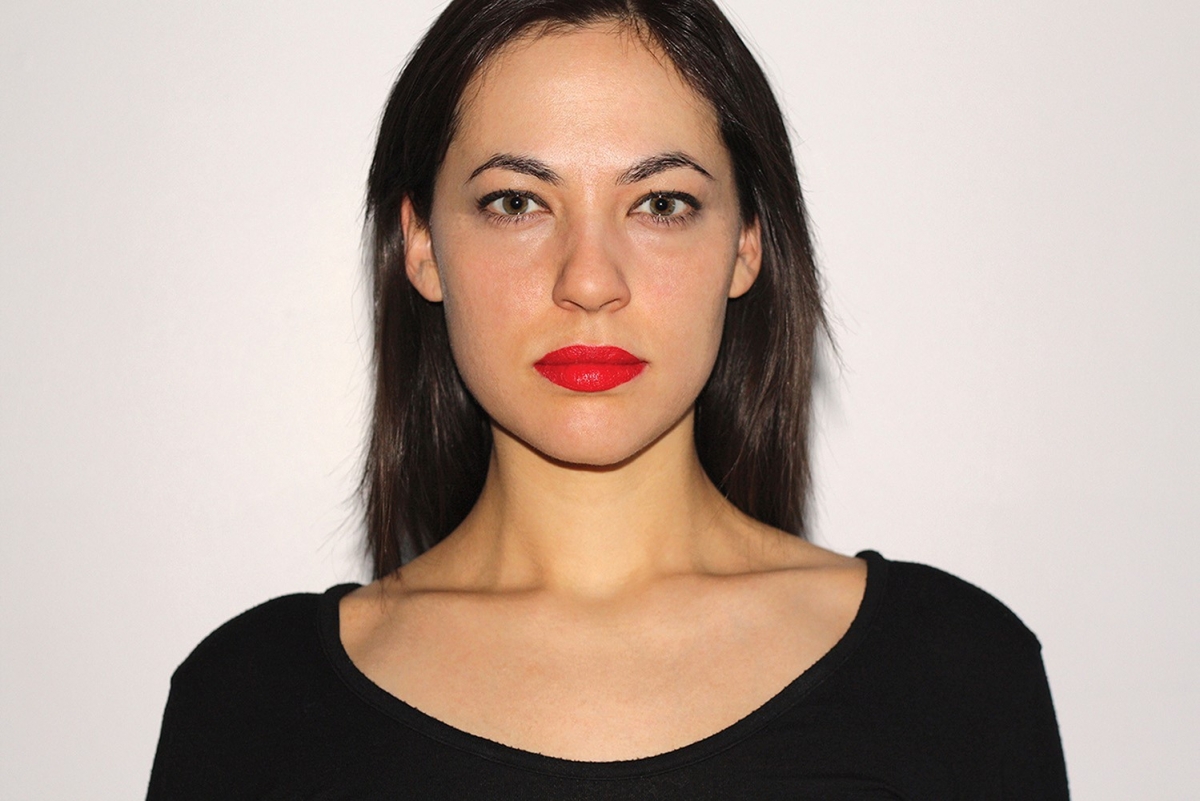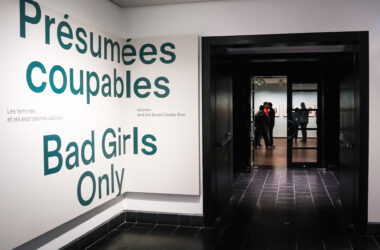On Jan. 28, artist Caroline Monnet presented a virtual Artist Talk as McGill’s first Artist in Residence. Co-organized by the department of Art History and Communications Studies (AHCS) and the Indigenous Studies and Community Engagement Initiative (ISCEI), the event marked not only the beginning of Monnet’s residency, but also a momentous step towards including Indigenous voices in the university’s academic context and community.
In conversation, Monnet is friendly and humble. In the art industry, she is an incredible, almost intimidating force to be reckoned with, boasting numerous accolades, residencies, and exhibitions—both local and international. Part Algonquin and part French, the visual artist and filmmaker largely focusses on the Indigenous experience in her artwork: Monnet edifies audiences on historical and contemporary Indigenous issues and reflects on her own lived experiences with biculturalism. One of her goals as an artist, Monnet suggests, is to examine society, and highlight what she sees.
“I see artists a little bit like sociologists, because our role is to respond to the world around us,” Monnet said.
With nearly 100 people in attendance, Monnet discussed her inspiration and motivation for her work, and walked the Zoom attendees through some of her films and visual artwork. She began with a viewing of Ikwé (2009), her first officially released film. Translating to “woman” in Cree, Ikwé is a personal reflection on the importance of connection to one’s past, showing interspersed images of Monnet and of a moon, representative of Monnet’s eldest grandmother. Monnet explained her interest in the moon’s control over the tides of bodies of water, and how it affects environments and migration patterns.
“I was interested in how we physically shape and impact our environment and how [it] influences the people that we are,” Monnet said, referencing the motif of both physicality and metaphor that is so often present in her work.
A skilled multidisciplinary artist, Monnet’s work extends beyond film. “Like ships in the night”—her art installation that features video, concrete, copper, and a triptych of photographs—details a 22-day journey across the Atlantic that Monnet took in 2012, in which she left a Dutch port on a steel-carrying cargo ship and traveled to Montreal. Monnet documented her journey with a video camera, examining the emotions of fear and serenity as she traveled, while also noting the Atlantic Ocean as a medium for colonial trade.
“I wanted to challenge colonial organization of land, body, and time by exploring how communication and the cycle of the moon and tide can actually bridge physical and psychological divides,” Monnet said.
In an interview with The McGill Tribune, Monnet spoke on her new position as Indigenous Artist in Residence, noting the importance of artists and Indigenous voices in academia.
“I think institutions like McGill are starting to see the role they can play in giving more space to Indigenous students and Indigenous representation within their institution,” Monnet said. “ I believe this type of initiative can be a transformative experience, expanding knowledge, nurturing critical thinking and inspiring new ideas, creativity and innovation. It is surprising that it took this long, until 2021, to have such initiatives, but it’s better late than never.”
Despite the virtual nature of her position at the moment, Monnet hopes to actively engage with the McGill community.
“I’m hoping to exchange as much as possible with faculty and students [and] to be able to share as much as possible, to be available for students or anyone that wants to talk to me or learn more about my practice,” Monnet said. “I’m starting to see a few people reaching out and wanting to chat about art or Indigenous issues and I just think that’s what’s important right now, [to] have conversations.”
While also working on her first feature film, Monnet has an upcoming exhibition that will be presented at the Montreal Museum of Fine Arts in April 2021. Office hours can be found here.









